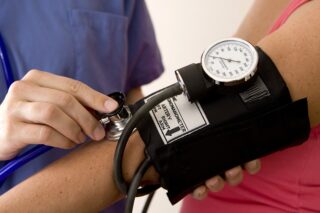
As many as 6 million people in the U.S. have atrial fibrillation or AFib, putting them at significantly increased risk for heart attacks and stroke. That’s about 6 percent of the population. Although AFib is not uncommon, there are a lot of misconceptions about the condition, including how it’s treated. Here are a few of the most common AFib myths you should be aware of:
- Myth: Atrial fibrillation only affects seniors.
- Fact: While AFib is more common among seniors, plenty of younger people also have the condition. In fact, the CDC estimates about 2 percent of men and women under the age of 65 years have atrial fibrillation.
- Myth: AFib causes symptoms that are very noticeable.
- Fact: Many people with mild AFib have little or no symptoms; having routine cardiac assessments is the best way to know for sure if you have atrial fibrillation so you can receive treatment.
- Myth: People with atrial fibrillation must avoid exercise.
- Fact: In most cases, people with AFib can still participate in physical activities by following their doctor’s recommendation. A heart rate monitor can help patients adjust their activity so their heart rate remains within a healthy range.
- Myth: Catheter ablation procedures can only be performed once.
- Fact: Ablation can be performed more than once to improve success rates in some patients. In fact, while up to 80 percent of AFib patients achieve success with a single ablation procedure, success rates go up to 90 percent with a second or third procedure.
- Myth: Diet doesn’t affect AFib.
- Fact: Caffeine, alcohol and even salty foods can increase the risk of having an AFib episode, and stimulants like those found in some cough medicines can also trigger AFib.
- Myth: AFib often resolves on its own.
- Fact: AFib is nearly always a chronic condition, requiring ongoing management throughout your lifetime to keep it under control. When AFib occurs as a result of an underlying condition like thyroid disease, treating that condition may cause AFib symptoms to resolve.
- Myth: Having cardiac ablation means you won’t need medication.
- Fact: While ablation can eliminate the need for blood-thinning medicines in some patients, patients with certain risk factors may still need to take their medication to reduce the risk of stroke. The determination of whether medication will still be needed following a successful ablation procedure will be made on a patient-by-patient basis..
Keep your AFib under control.
About 25 percent of men and women over the age of 40 years will develop AFib. Managing the condition successfully requires ongoing assessments and evaluations to ensure medication and other treatments are optimized for each patient’s needs. Dr. Dilip Mathew is a leading electrophysiologist in the Sarasota, FL, area, offering state-of-the-art AFib assessments to help patients lead healthier lives at every age. To schedule a consultation, call Heart Rhythm Consultants today at (941)210-0950.



